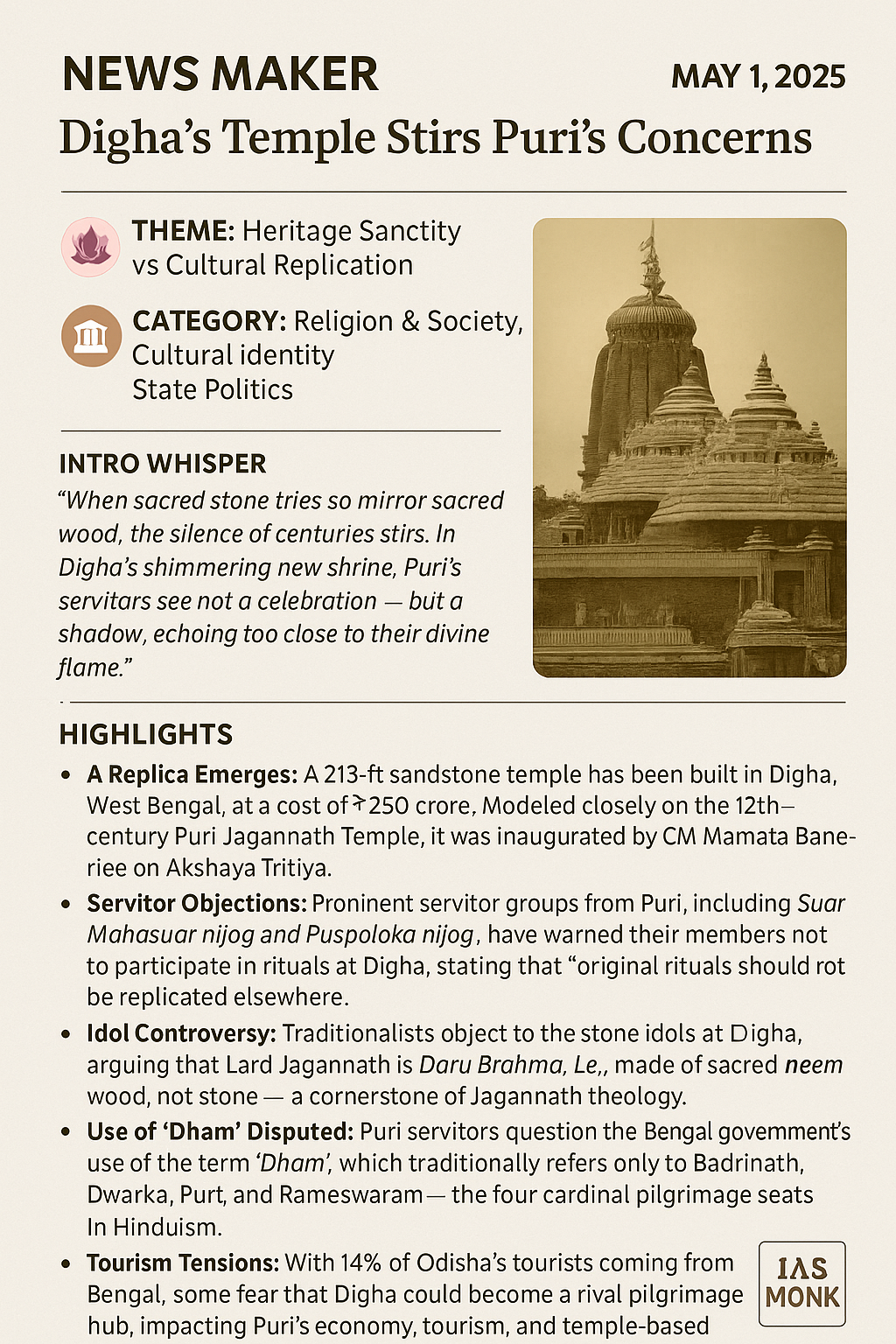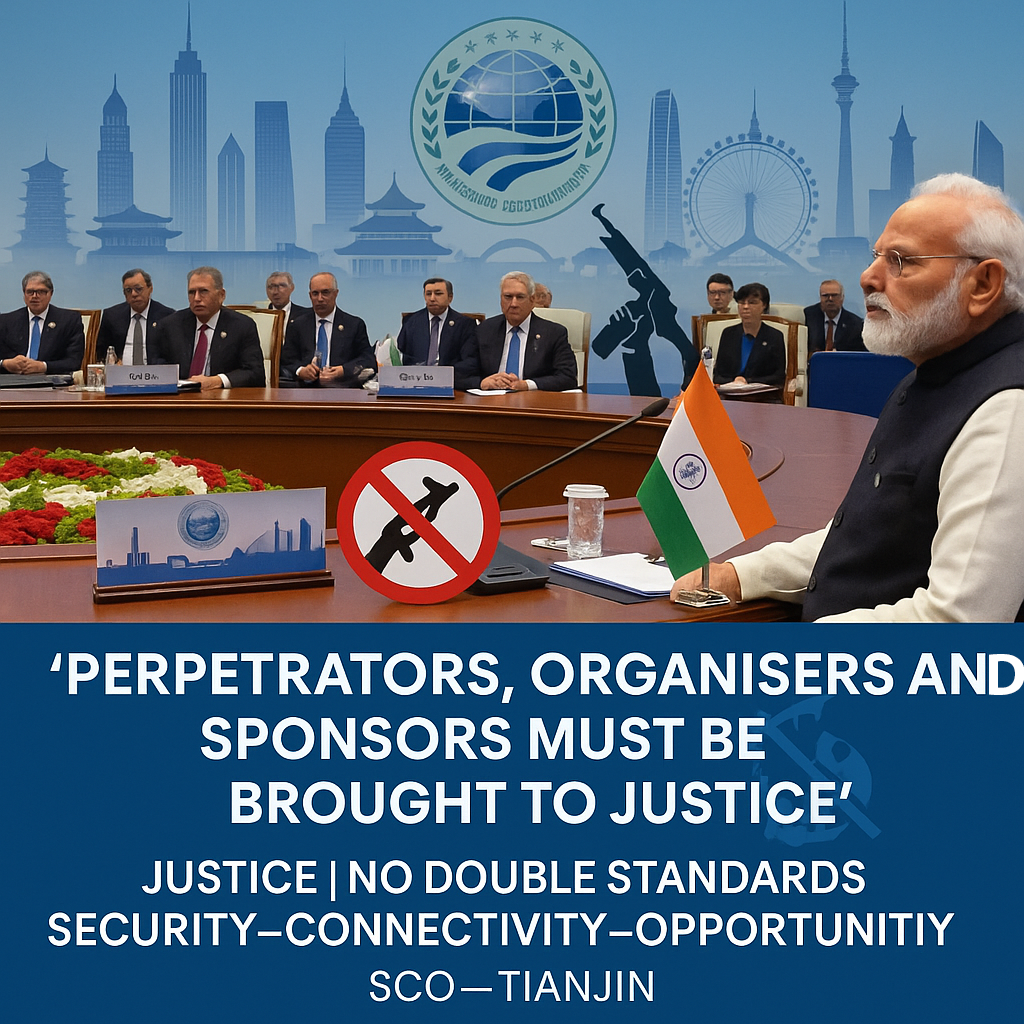
The Second Seat? Digha’s Jagannath Temple Sparks Puri’s Concerns
🌟 NEWS MAKER — MAY 1, 2025
The Second Seat? Digha’s Jagannath Temple Sparks Puri’s Concerns

🪷 THEME: Heritage Sanctity vs Cultural Replication
🏛️ CATEGORY: Religion & Society, Cultural Identity, State Politics
📜 INTRO WHISPER
When sacred stone tries to mirror sacred wood, the silence of centuries stirs. In Digha’s shimmering new shrine, Puri’s servitors see not a celebration — but a shadow, echoing too close to their divine flame.
🔍 HIGHLIGHTS
- A Replica Emerges:
A 213-ft sandstone temple has been built in Digha, West Bengal, at a cost of ₹250 crore. Modeled closely on the 12th-century Puri Jagannath Temple, it was inaugurated by CM Mamata Banerjee on Akshaya Tritiya. - Servitor Objections:
Prominent servitor groups from Puri, including Suar Mahasuar nijog and Puspalaka nijog, have warned their members not to participate in rituals at Digha, stating that the original rituals should not be replicated elsewhere. - Idol Controversy:
Traditionalists object to the stone idols at Digha, arguing that Lord Jagannath is Daru Brahma, i.e., made of sacred neem wood, not stone — a cornerstone of Jagannath theology. - Use of ‘Dham’ Disputed:
Puri servitors question the Bengal government’s use of the term ‘Dham’, which traditionally refers only to Badrinath, Dwarka, Puri, and Rameswaram — the four cardinal pilgrimage seats in Hinduism. - Tourism Tensions:
With 14% of Odisha’s tourists coming from Bengal, some fear that Digha could become a rival pilgrimage hub, impacting Puri’s economy, tourism, and temple-based livelihoods in the long run.
🧭 GS PAPER MAP
- GS I: Indian Culture – Art, Architecture, and Pilgrimage Traditions
- GS II: Federalism – Centre-State & Inter-State Religious Friction
- GS IV: Ethics – Cultural Integrity, Commercialisation of Sacred Symbols
🪔 A THOUGHT SPARK — by IAS Monk
Temples are not made of stone or wood alone — they are carved in memory, devotion, and shared silence. When echoes try to become originals, the soul begins to stir — not in anger, but in longing for distinction.
















